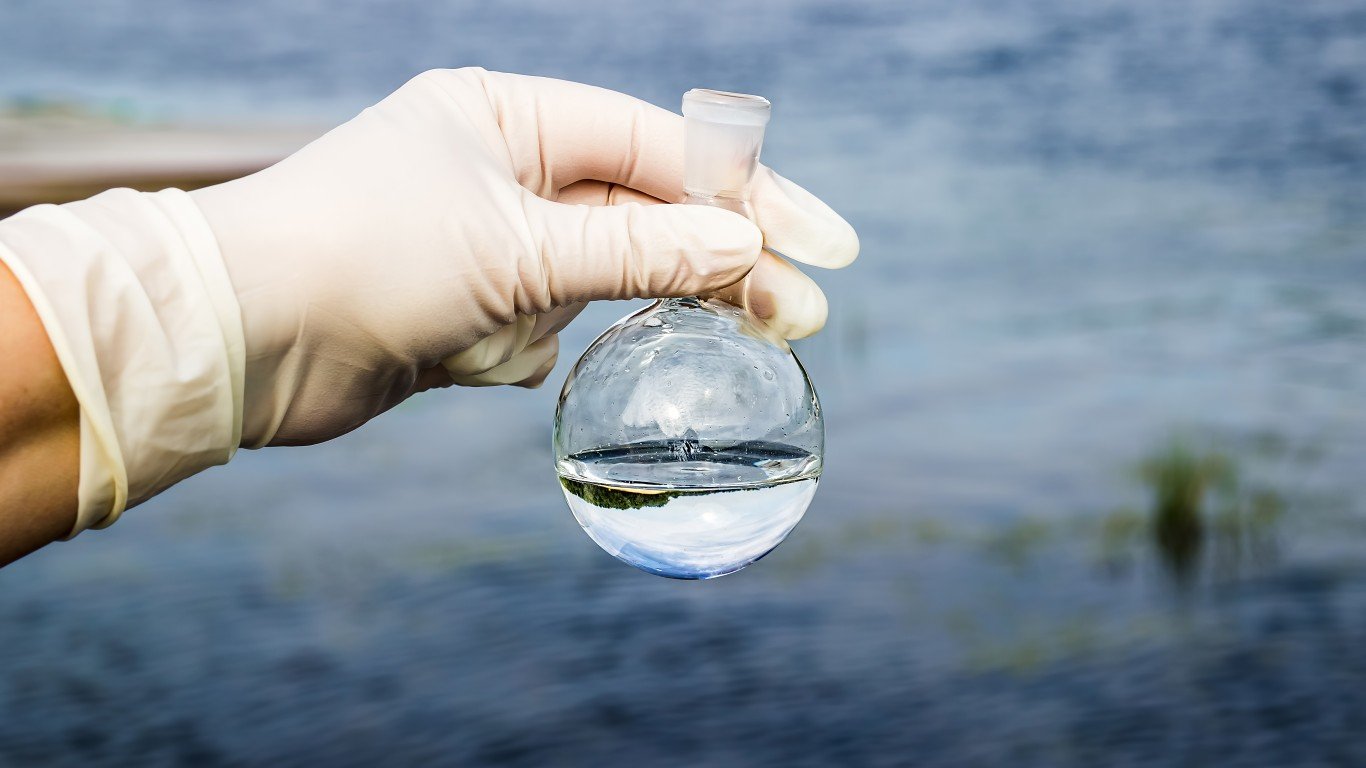

Among the goals set out by presidential candidate Joe Biden in his infrastructure and clean energy plan is “ensuring clean, safe drinking water” in every American community. To reach that goal, Biden proposes investing in repairing water pipelines and sewer systems, replacing lead service pipes, upgrading waste treatment plants and integrating efficiency and quality monitoring technologies.
Those investments will require significant expenditures, and to that end, Biden has proposed a four-year, $2 trillion infrastructure program to fund these and other infrastructure-related programs.
Cleaning up trouble spots typically is relegated to specialized firms that have the knowledge and expertise to perform this complicated and expensive work. Publicly traded firms that supply water to municipalities of all sizes are responsible for meeting regulatory restrictions in the systems they operate.
For example, in July the U.S. Environmental Protection Agency (EPA) announced a final rule that reduces the lead content in public water systems, homes, schools and other facilities from a prior maximum of 8% to a new limit of 0.25%. The final rule applies to new construction and to the replacement of existing plumbing systems.
It was the change in the source of the water supply to Flint, Michigan, in 2014 that triggered the increased amount of lead in the city’s water supply. The new supply flowed through old and highly corrosive lead pipes.
An amendment to legislation in the U.S. House of Representatives authorizes spending $4.5 billion annually for five years to replace all the lead service pipes in the country, with priority given to disadvantaged communities that are exposed to a disproportionate share of environmental-related health threats.
The most recent four-year “report card” from the American Society of Civil Engineers includes an estimate of the investment needed to bring U.S. infrastructure back to a better-than-passing grade. The last report was completed in 2017 and set the country’s needed infrastructure investment at $2 trillion over the 10-year period between 2016 and 2025.
Upgrading the country’s water and wastewater infrastructure was estimated to require about $150 billion in funding, with just $45 billion of that estimated to be available. That $105 billion gap marks a funding target for spending under a Biden administration.
The American Water Works Association, an organization for water systems professionals, has made a far higher estimate of the funding needed to repair and replace the country’s water systems: $1 trillion to upgrade nearly a million miles of underground pipe, much of which is nearly 100 years old and in critical need of being replaced.
Here we look at eight companies, five that provide water supplies to cities and towns and three that provide the pumps, valves, pipes and equipment that transport and treat water and wastewater. The regulated water suppliers currently make capital investments in upgrading and replacing their infrastructure.
All have market caps greater than $1 billion, and all but one currently trade at about 25 times or more their expected 2021 earnings. Compared to the S&P 500’s year-to-date gain of around 4.6%, water utilities’ stocks have added nearly 16% this year.
American Water Works
With a market cap of around $26.4 billion, American Water Works Co. Inc. (NYSE: AWK) is the largest publicly traded water and wastewater service firm in the United States. The company serves some 15 million customers in 46 states. Both its size and its geographic diversity might be attractive to investors.
Its stock closed Thursday at $146.52, up about 0.5% for the day, in a 52-week range of $92.00 to $150.47. The price target on the stock is $143.15, about 2.3% lower than the closing price, which remains about 2.6% below the 52-week high. Based on expected 2021 earnings of $4.22 per share, the stock trades at a multiple of 34.7. American Water Works pays a dividend yield of 1.51%.
Essential Utilities
The country’s second-largest regulated water services firm, Essential Utilities Inc. (NYSE: WTRG) has a market cap of around $11.1 billion. It also has 3 million customers in eight states, all east of the Mississippi River. The company also operates natural gas pipelines through its Peoples subsidiary. Until February of this year, the company was known as Aqua America.
The stock closed $45.32 a share on Thursday, down about 1% for the day, in a 52-week range of $30.40 to $54.52. The stock trades at 27.3 times expected 2021 earnings, and with a price target of $49.00, it has a potential upside of 8.1%. Essential pays a dividend yield of 2.2% and is currently trading about 17% below its 52-week high.
Watts Water Technologies
Watts Water Technologies Inc. (NYSE: WTS) manufactures and sells products and systems that manage the flow and conservation of water resources. The company serves residential and commercial customers worldwide, and its products, from valves to filtration systems and drains, will be in greater demand if spending on water infrastructure is forthcoming. Watts was founded in 1874 and has a market cap of about $3.2 billion.
Watts stock closed at $94.31 on Thursday, down about 0.2%, in a 52-week range of $69.02 to $114.45. Shares traded about 18% below their 52-week high but nearly 8% above their consensus price target of $87.00. The stock closed at 24.7 times expected 2021 earnings. The dividend yield here is 0.97%.
Thank you for reading! Have some feedback for us?
Contact the 24/7 Wall St. editorial team.
 24/7 Wall St.
24/7 Wall St.


